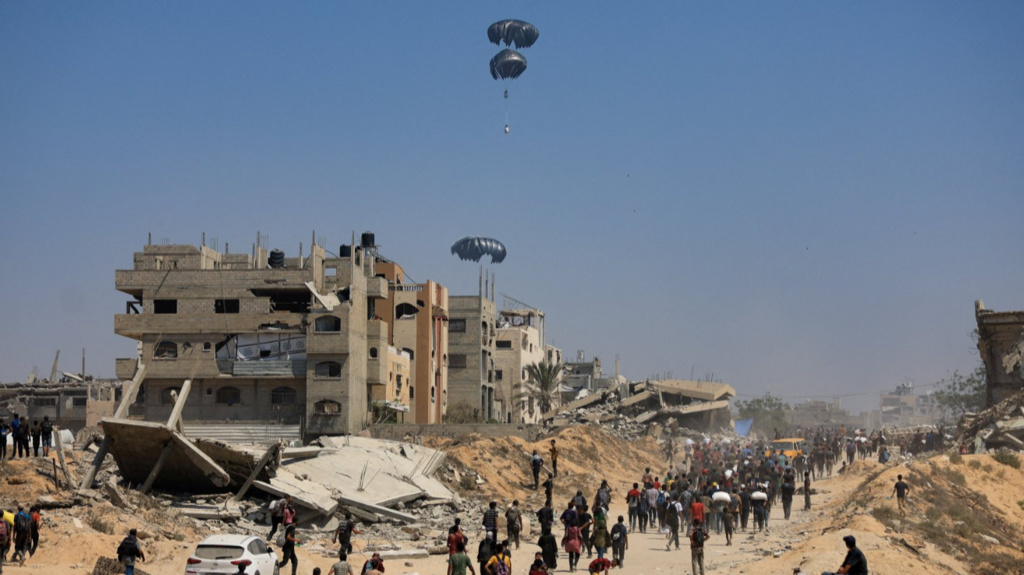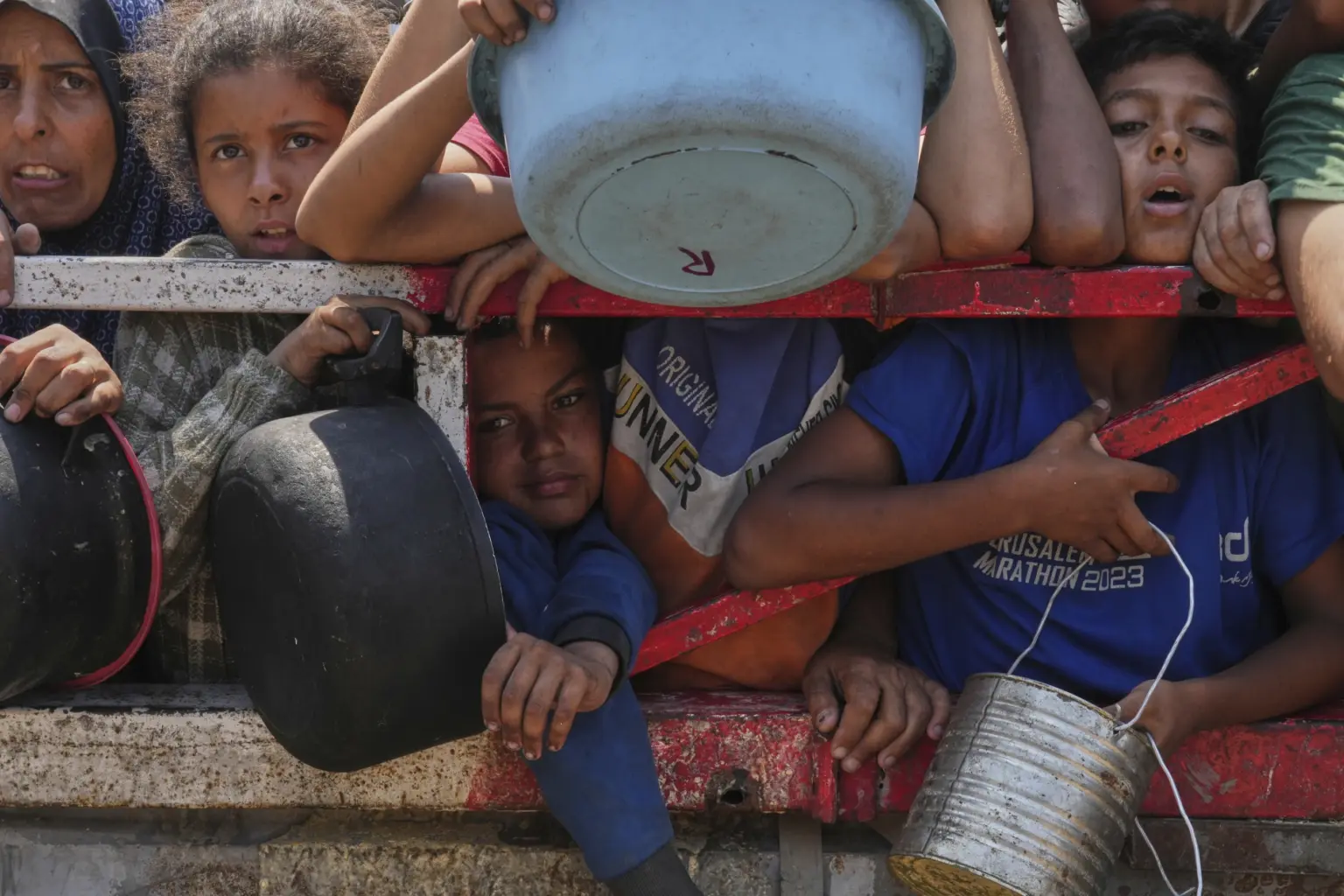GAZA STRIP, July 27– A rare sign of hope appeared in the skies over Gaza today. In the first Gaza Aid Airdrop in months, planes from the UAE and Jordan dropped 25 tonnes of life-saving supplies.

Food packages floated down on parachutes to communities cut off by war. Thousands struggling to survive received their first relief in weeks. A Jordanian official confirmed the mission, which came after rising pressure from the international community and waves of protest through the global strike for Gaza movement.
Israel paused military operations in key areas for 10 hours to allow the delivery. The temporary window opened corridors over Gaza City, Deir al-Balah, and Al-Mawasi. Jordan and the UAE quickly responded with coordinated drops of flour, canned food, and medicine. But aid agencies say the need is far greater and growing.
Gaza Aid Airdrop Can’t Replace Safe Access or Lasting Peace
This Gaza Aid Airdrop is a lifeline, but not a solution. Many drops missed their targets. Others were quickly overwhelmed by desperate crowds. UN officials and humanitarian groups continue to urge for full access by land. They warn that without a lasting truce, airlifts will only delay a worsening crisis.
The time in Gaza is marked by fear, hunger, and uncertainty. With every passing hour, families wait for food, for news, for safety. Talks around a Gaza ceasefire remain stalled. The headlines bring little comfort. No agreement has been reached, and the fighting continues just beyond the aid zones.
Even in moments of calm, the danger doesn’t end. People have died while trying to collect aid. Hospitals run on limited power. Parents struggle to explain the noise overhead to frightened children. The time in Gaza Strip drags under the weight of trauma and survival.
This latest drop follows growing calls from around the world. Protesters, communities, and aid workers have joined the global strike for Gaza, demanding more than band-aid solutions. They want access, accountability, and above all, peace.
For now, the Gaza Aid Airdrop offers brief relief. But for lasting change, people here need more than food from the sky. They need a future where aid isn’t airdropped but arrives through open roads, in a region no longer torn by war.







